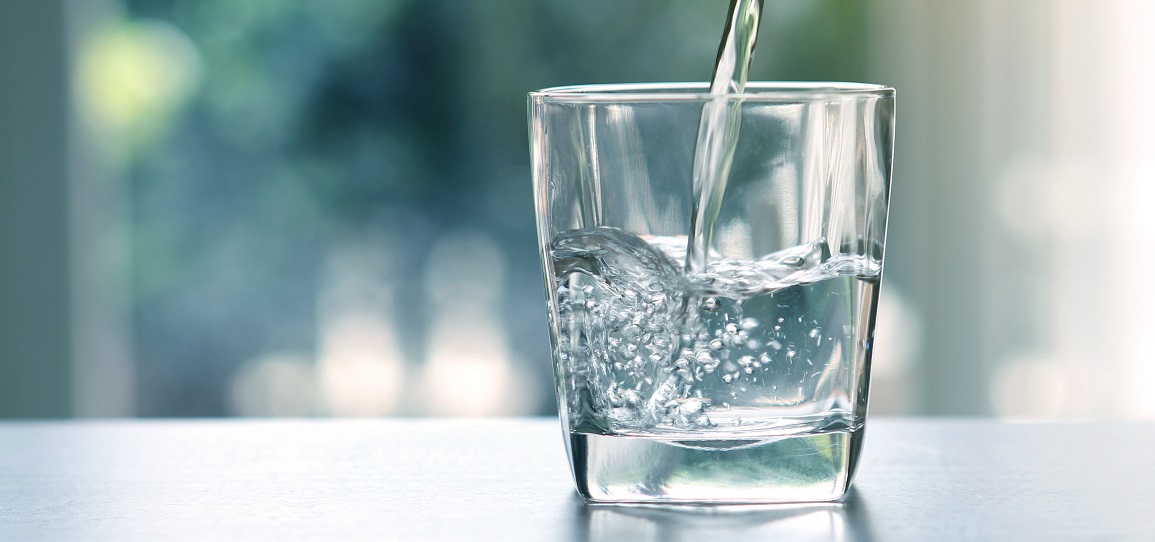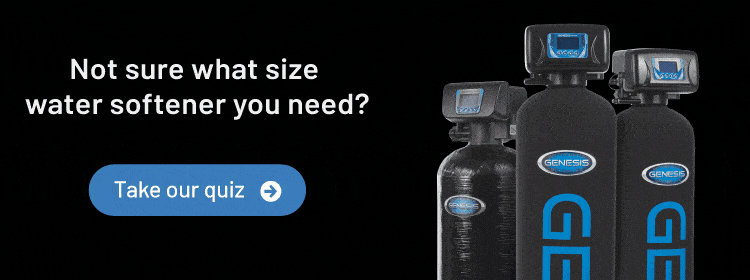Can You Drink Softened Water?
Posted by Discount Water Softeners on Mar 25th 2021
It’s easy to understand why people might think drinking softened water is the same as drinking salt water. After all, a water softener does use sodium during the ion exchange process to remove minerals like calcium and magnesium that make water hard. And while it’s true that you need to add salt to your softener system’s tank, that doesn’t mean your water becomes salty as a result.

Softened water contains sodium—which isn’t quite the same as salt. Salt is the term commonly used for sodium chloride (NaCI) or table salt; sodium chloride is 40% sodium and 60% chloride. We need a small amount of sodium in our diets to maintain the proper balance of water and minerals. Too much sodium in our diets can lead to high blood pressure and heart disease. Does this mean that using a water softener is detrimental to our health?
Sodium is a naturally occurring mineral and found in almost everything you consume. From apples to milk to almonds to tomatoes, it’s nearly impossible to avoid. On average, a gallon of softened water has approximately the same amount of sodium as a slice of bread. For most healthy people, the small amount of sodium added to softened water poses no health problems. However, for people with high blood pressure and on low-sodium diets or sodium-restricted diets, even a small increase in sodium should be avoided.
If you have a medical condition that requires careful monitoring of sodium in your diet, the best way to remove all salt from your water is with a reverse osmosis filter. This can be used in conjunction with a water softener system. Reverse Osmosis (RO) can remove impurities from your already softened water, including 98% of all sodium. Water softeners and RO filters complement each other well because they each do what the other cannot.
RO + Water Softening = The Perfect Combo
Reverse osmosis is water purification technology that uses a semi-permeable membrane to remove salt and other large particles from drinking water. Reverse osmosis drinking water is sodium-free, chemical-free, great-tasting water. A water softener and RO system are a perfect combination. While a water softener will give you soft water throughout your entire home by removing minerals that make your water hard, a reverse osmosis system gives your household superior drinking water by removing nearly all other impurities (including the salt added by the ion exchange process of water softening.)
Water quality is often difficult to discern by sight or taste, which is why scientifically proven methods of filtering water, like the process of reverse osmosis, is invaluable for families who desire the safest, cleanest water possible in their homes. Reverse osmosis improves water for drinking and cooking by eliminating foreign contaminants and harmful substances from water.
RO systems work by removing sediment and chlorine with a pre-filter, then using pressure to force water through a semi-permeable membrane to remove dissolved solids. After the water exits the membrane, it passes through a post-filter to purify the drinking water before entering your faucet. Reverse osmosis systems use a sediment filter, carbon filter, and semi-permeable membrane to remove 99% of dissolved contaminants including salt, bacteria, lead, nitrates, and arsenic.
Drinking reverse osmosis water also helps minimize health risks, like high blood pressure and low fertility, associated with contaminated drinking water. RO filters and removes disease-causing parasites that find their way into water sources. There are thousands of toxins that can make water unsuitable for consumption; reverse osmosis eliminates the threat to safe water.
Will an RO Filter Soften Water?
A water softener is designed to tackle hard water by removing the ions that make water hard and replacing them with sodium ions. Softening systems do this task efficiently, saving energy and prolonging the life of household appliances. Reverse osmosis can also be used to soften water, but using an RO filter to remove hard minerals wastes water and will wear membranes out quickly.
RO systems are highly susceptible to hard water damage. This can make your filtration system inefficient and costly. Reverse osmosis is exceptional at treating softened water, therefore, using a water softener together with RO provides multiple benefits. Your water softening system protects your RO filter and your water-using appliances, your reverse osmosis filter makes your softened water taste better and better for you.
Drinking more water is a smart and healthy decision. You have many choices when it comes to what kind of water you drink. When you take out all the impurities from your drinking source, you’re left with nothing but pure, refreshing water. Using a water softener in conjunction with a reverse osmosis filter gives your home and family the benefits of the cleanest, safest water, down to the last drop.

